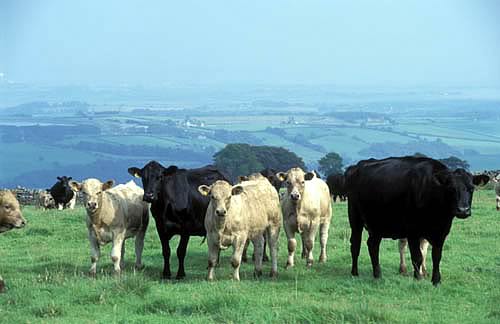2018-04-11 |
UK Agriculture must Innovate before Brexit
Farming must adapt quickly to remain competitive after Brexit, increasing productivity through innovation and enlisting younger, more highly trained farmers to bring renewed leadership to the sector warns the CAAV.
“There’s little doubt that Brexit will produce a more challenging environment for farming, but it will also create a more commercial one too,” says Jeremy Moody, secretary and adviser to the Central Association of Agricultural Valuers (CAAV). “Though Brexit is not something that will happen overnight and is likely to feature a range of transitional periods, farming businesses should act now while there is time to control it.”
© www.farm-images.co.uk
With changes to trade and tariffs likely, along with reorientation of farm support, it’s essential to start planning for more competitive times. “Those changes are outside farmers’ control and they need to look at how they can best prepare their businesses,” says Mr Moody. “Farming’s challenge is to improve productivity while embracing more environmentally focused practices and the highest animal welfare standards.”
High performing businesses will be best placed to manage the change, he explains. To maximise productivity, farmers need to make efficient use of their skills, resources, and technological advances. “The overall drive needs to be toward greater innovation through a combination of business strategy, good information management, investment and adopting new technologies as they become available,” he adds.
“We appear to be on the edge of a major technological revolution; farm businesses need to take advantage of this to remain competitive. Equally, the right encouragement for research and innovation could establish the UK as a global hub for technology.”
Education and knowledge exchange are key ways to tackle the challenges posed by Brexit, as those producers who are using the latest practices, techniques and innovations will be the ones who successfully take their farms into the future. “We need flexibility for the best farmers to get access to land,” explains Mr Moody. “An Indecon study has shown that where land moves to a formally trained farmer there is an average 12% gain in yield, three times more than from generational change.”
To meet environmental targets for soil, water and climate change, farmers will likely be expected to increase carbon storage, manage inputs more efficiently, use precision farming and improve soils. “Some farmers are already implementing techniques to do these things, but it’s going to be expected of the wider industry in order to receive subsidies,” warns Mr Moody.
Where commodity production may no longer pay, farmers will look to create or exploit other market opportunities. They will therefore need to make the most of professional advisers, who will play a vital role in making farm businesses successful. “This may be through strategic discussions, giving advice on business approach, land and structures, and helping implement change.”
However, the Government also needs to take the right steps to enable agriculture to thrive, with a practical policy framework for the industry’s adaptation and innovation, adds Mr Moody. “Brexit is an opportunity but also a prompt for agriculture to do many of the things it should be doing anyway.”

